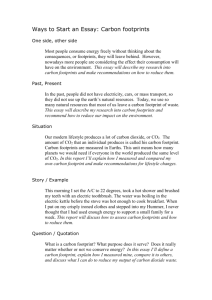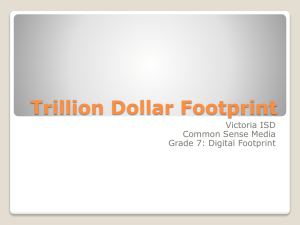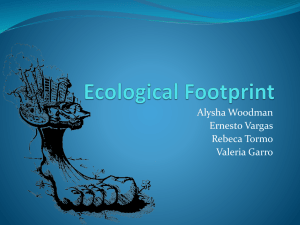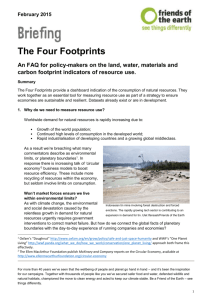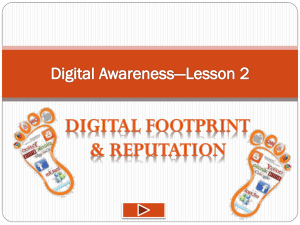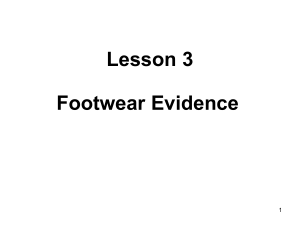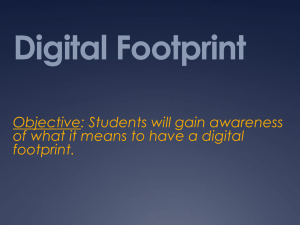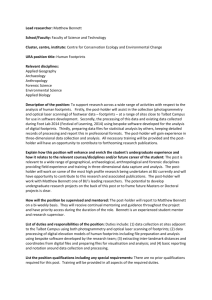Digital Footprints
advertisement
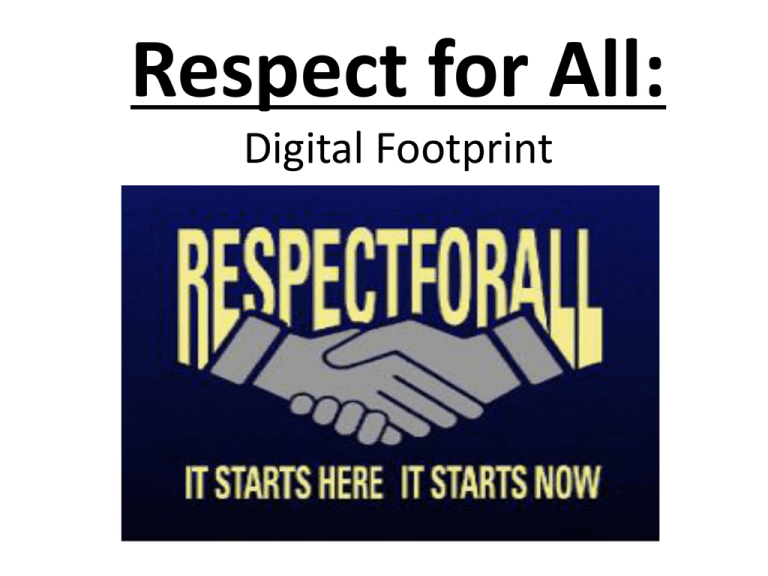
Respect for All: Digital Footprint Lesson Objectives: Students will be able to … Define the term digital footprint and understand how their actions impact their footprint online Understand that their digital footprint includes information from it can be searched; copied; passed on; seen by a large, invisible audience, and can be persistent Recognize that their online information can be helpful or harmful to their reputation or image Consider their own digital footprints and what they want those footprints to look like in the future Digital Footprint: Video https://www.youtube.com/watch?v=DinW62zlWcc What Is A Digital Footprint? A digital footprint is the collection of all the traces you leave in electronic environments as you use or move through them.Some is content you actively volunteer—like your Facebook profile. Other material is passive—the cookies a site stores in your browser, the content your district collects about your use of their equipment, etc. All this data can be aggregated to build a profile of you and your behavior Digital Footprint: Group Work 1. If we were to look you up online what would we learn about you? 2. What are your digital footprints? 3. Is there anything online that you wouldn't want your teacher or parent to know about you? Digital Footprints (College and Scholarship Committees) Just as employers are reviewing digital footprints, so are those who approve college admissions and award scholarships. They want to see what the “real” youth is like vs. the polished image seen in an application or interview. Digital Footprints Digital Footprints (School) • Some of the extra-curricular and co-curricular activities that we offer at ORHS have clauses in their constitutions and/or handbooks requiring a high level of behavior and standards to be displayed. • School officials and law enforcement can use information found online as evidence to suspend or enforce other disciplinary measures. Digital Footprints Digital Footprint Checklist The question is not whether you are leaving a mark. The question is, “What kind of mark are you leaving?” • Do the photos included in your digital footprint show that you would be a good employee/student/team member/citizen? • Are the comments that you have posted on your pages and the pages of others appropriate (not overly negative, free of crude language, etc.)? • Is the music and video on your site of your own creation or copyright free? • Do the music and movie files that are part of your digital footprint portray you in a positive light? • Have you only included your name and email address on your site? (not a home address, phone number, etc.) • When participating in online discussions, have you done so in a positive manner? • Would you be comfortable with a parent, mentor, employer, or college admissions officer viewing what is included in your digital footprint? • Have you refrained from posting anything that could hurt another person’s feelings or reputation? If your answer is “yes” to the questions above, then you are maintaining a positive digital footprint. Digital Footprints Checklist Keys to Shaping a Positive Online Image • • • • • Be selective about what you put online ‐ You should post only information that you are comfortable with others seeing and knowing. Don’t post anything to your site that would be morally or ethically questionable. The digital footprints you leave should lead to a positive image that you create and control. Posting is permanent ‐ Once you post to the Internet it can be copied, saved, and used by others. You should think before you post anything online. Private is never private ‐ There are ways to get around the privacy settings on your social networking site. Post only items you wouldn’t mind your family, friends, employers, colleges, or the police seeing. Monitor regularly ‐ Even if you control what you post online, others can post information about you. Perform regular online searches of your name to view any new information that has been posted about you. Ask that any photos of you that could be seen as unflattering be removed, and watch how your friends use your name when they add you to their sites. Use the Internet to your advantage – Use online communication and tools to network. Share your knowledge and creativity in an E‐portfolios. Engage in community action groups. Share your expertise and passions.
